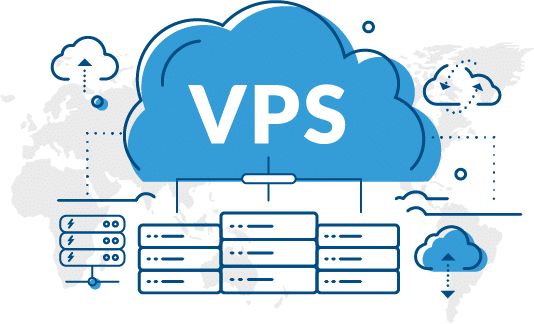Introduction
Choosing the right type of hosting is like choosing the foundation for your online presence. Whether you’re a startup in Kathmandu, a freelancer in Pokhara, or a growing eCommerce brand in Biratnagar, your hosting directly affects your website’s speed, uptime, scalability, and security. This blog breaks down the core differences between Shared Hosting, VPS (Virtual Private Server), and Dedicated Hosting, clearly focusing on what works best in the Nepali market.
What is Shared Hosting?

It is the most budget-friendly option, perfect for beginners and small websites. You share one physical server with multiple other websites, meaning resources like CPU and RAM are split between users.
Pros:
– Affordable pricing (ideal for personal blogs and startups)
– Easy to use with cPanel access
– Managed environment with minimal technical work
Cons:
– Slower performance during high traffic
– Limited control over server settings
– Vulnerability to security breaches from neighboring websites
Best For:
– Small businesses
– Personal portfolios
– Nepali bloggers starting out
What is VPS Hosting?

A Virtual Private Server is a hybrid solution — you still share a server, but with dedicated resources. Think of it as owning a private room in a shared apartment.
Pros:
– Better performance and speed
– Root access and control
– Can handle moderate traffic spikes
Cons:
– More expensive than shared hosting
– Requires some technical knowledge
Best For:
– Medium-sized businesses in Nepal
– Growing eCommerce platforms
– Developers and resellers
What is Dedicated Hosting?

It gives you an entire server to yourself — complete freedom, top performance, and maximum control. But it also comes with a higher price tag.
Pros:
– Full control and customization
– Superior speed and performance
– Highest level of security
Cons:
– High cost
– Requires server management expertise
Best For:
– Large enterprises in Nepal
– Government or educational portals
– Sites with massive traffic and sensitive data
Hosting in the Nepali Context
In Nepal, internet infrastructure and customer support can vary. Here’s how these hosting types stack up locally
| Hosting Type | Ideal For | Average Cost in Nepal (Monthly) | Local Considerations |
| Shared Hosting | Personal/Startups | Rs. 150 – Rs. 500 | Great for affordability, but choose a provider with good local support |
| VPS Hosting | SMEs/Developers | Rs. 1000 – Rs. 4000 | Look for SSD/NVMe and local data center options |
| Dedicated Hosting | Enterprises | Rs. 8000+ | Best for mission-critical apps, ensure 24/7 monitoring and backups |
Final Verdict: Which One to Choose?
– Go Shared if you’re just getting started and want a no-fuss website.
– Go VPS if your business is growing and you need performance and flexibility.
– Go Dedicated if you’re running a mission-critical operation or a large traffic site.
Pro Tip: Hosting providers like Nest Nepal offer scalable packages tailored to Nepali needs, with 24/7 local support and blazing-fast NVMe SSDs.
Conclusion
Your hosting isn’t just about putting your website online — it’s the powerhouse behind speed, uptime, and user experience. Make your choice based on current needs, future growth, and local support.
FAQs:
1. What is the difference between Shared Hosting, VPS, and Dedicated Hosting?
Shared Hosting means your website shares server resources with others. VPS offers dedicated portions of a shared server, while Dedicated Hosting gives you an entire server to yourself, offering maximum control and performance.
2. Which hosting type is best for beginners in Nepal?
Shared Hosting is ideal for beginners and small websites in Nepal. It’s budget-friendly, easy to manage, and perfect for blogs, portfolios, or new business sites.
3. Is VPS Hosting suitable for my growing eCommerce website?
Yes, it is great for growing eCommerce platforms. It provides better speed, more resources, and flexibility to scale as your traffic increases.
4. How expensive is Dedicated Hosting in Nepal?
In Nepal, such hosting typically starts around Rs. 8,000 per month. It’s designed for large enterprises, government portals, or websites with heavy traffic and security needs.
5. Do I need technical skills to manage VPS or Dedicated Hosting?
Yes, both hosting services usually require some technical knowledge. However, many providers in Nepal offer managed services, so you can focus on your website while they handle the backend.
6. Can I upgrade from Shared Hosting to VPS or Dedicated later?
Absolutely. Most hosting providers allow seamless upgrades as your site grows. It’s best to start small and scale up when traffic or resource needs increase.
7. How does local hosting impact my website’s speed in Nepal?
Hosting with a provider that uses servers near or within Nepal can significantly improve load times for Nepali users, enhancing both SEO and user experience.
8. What should I look for in a Nepali hosting provider?
Look for SSD/NVMe storage, reliable uptime, 24/7 local support, easy scalability, and services like free SSL and backups. Providers like Nest Nepal offer plans tailored for local businesses.
9. Is it worth investing in hosting when free platforms exist?
Yes. Free platforms often come with limitations in performance, control, branding, and security. Paid hosting gives you professionalism, speed, and credibility, especially important in the competitive Nepali digital market.
10. Can I host multiple websites on one hosting plan?
Yes, many VPS and some shared hosting plans allow hosting multiple domains. Always check plan specifications or ask your hosting provider.